The story of Tulsidas and his wife Ratnavali is one of the most interesting stories of transformation. On a stormy (and, as it turns out, symbolic) night in the month of Shravan, a rain lashed, lovelorn Tulsidas stood on the banks of the Ganga. He simply had to get across. He yearned to be with his wife Ratnavali, who was visiting her family. But with the river in that condition, no boatman would ferry him across.
“Go home,” he was advised. But home is where the heart is, and his heart was with his beloved young wife.
As he stood there, drenched and pondering, a dead body floated by. Current passion clearly has scant regard for the departed, so Tulsidas, craving union with his wife, used the stiffened cadaver to row himself across the swollen waters.
Surprised to see him, Ratnavali asked how he had even got there.
“On a dead body,” her loving young husband answered.
“If only you loved Ram as much as you love this body of mine, mere flesh and bones!” Ratna murmured.
Suddenly the raging storm was a mere breeze compared to the storm within him. The taunt had found its mark. At one fell swoop, it decimated the carnal man to give rise to the unwavering devotee.
Tulsidas turned and walked away, never to return.
The Beginning Of The Story Of Tulsidas
He went on to write a considerable amount of devotional poetry, the Ramcharitmanas being the most famous of them all. What became of Ratnavali, we don’t know. But the flashpoint between the couple became Tulsidas’s moment of epiphany and he was transported to his true calling. Some say Tulsidas and Ratnavali had a son called Tarak who died when he was a toddler. But after Ratnavali’s taunt Tulsidas left married life, became a sage devoting his life to learning.
The story of Tulsidas is actually fascinating from his birth. It is said he spent 12 months in the womb before he was born and at birth had 32 teeth. Some say he was the reincarnation of sage Valmiki.
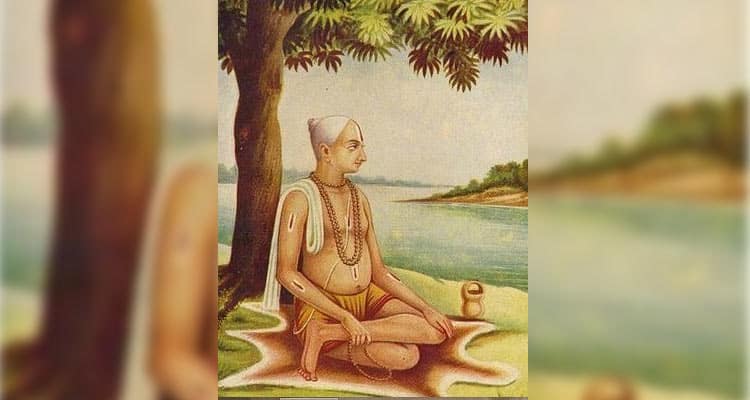
Image Source: Hindu Blog Twitter
Related reading: Spirituality helped me heal my relationship with a cheating partner
When the partner turns out to be the problem
People enter our life for a reason. Even the spouses that we may have ‘chosen’. Typically, when we fall in love and decide to marry, we imagine a pleasant life, gently bobbing up and down on life’s waters. We love our husband or wife, and they are going to be our partners through thick and thin, we affirm. Sure. But sometimes, it’s the partner who is instrumental in providing the ‘thin’ of life – a horror unimaginable to our limited imaginations.
“We are talking about human material,” a friend of mine had wisely quoted, when we were discussing a mutual friend’s devastation at the failure of her marriage. The initial devastation, though, gave way to a considerable period of introspection, after which, she emerged, chrysalis like, found her wings and took off. If the devastation hadn’t happened, she wouldn’t have discovered what she was capable of.
‘Human material’ is weak and defective, prone to misjudgement and error, yet most people are devastated to discover that their partner was unfaithful, or was embezzling funds or helped a colleague kill his girlfriend (ref. a recent case in Mumbai).
We fondly believe that who we have chosen is the best and can ‘never hurt us’, nor do anything wrong. So it’s all about us and our expectations, in which the unexpected has little place. Yet it’s the unexpected that propels us out of our comfort zones and into some serious thinking and action.
Related Reading: My wife had an affair but it wasn’t all her fault
What became of her when she was left behind?
Ratnavali may have expected to guilt Tulsidas into becoming a Rambhakt, while remaining at her side. He did become a Rambhakt, but he left. Her rejection had stunned and then spurred him.

Similarly, his abandonment of her may have spurred her into spiritual growth. She may have served her parents with loving care for the rest of their lives. She may have been pregnant with his child and may have raised it admirably. Or she may have become a Rambhakt herself and spent her days preaching Ram’s name. It would have taken her some time to get over the shock of his abandonment of her, though. Everyone knows the story of Tulsidas but no one knows what happened to Ratnavali.
The typical trajectory from desolation to insight begins with self-pity. Then it goes into extreme anger, then hatred, then indifference, then resignation and finally acceptance.
Acceptance necessarily is a mature closure to the entire proceedings; it can happen in an instant or may take one’s entire lifetime. Acceptance means that one has understood the situation in its entirety, and has understood that the spouse is ‘human material’ prone to wrongdoing (be it a minor misdeed or a more serious transgression). The complete willingness to forgive is a huge part of this acceptance; it’s like the Holy Grail in that respect, but achievable.
Awareness of human fallibility and a willingness to forgive it can spare us huge agony…if we allow it.
Pilgrimage
the hard journey
from
murky confusion
to
brilliant clarity
from Haiku and other Micropoetry
(my book of poems)
Your contribution does not constitute a charitable donation. It will allow Bonobology to continue bringing you new and up-to-date information in our pursuit of helping anyone in the world to learn how to do anything.



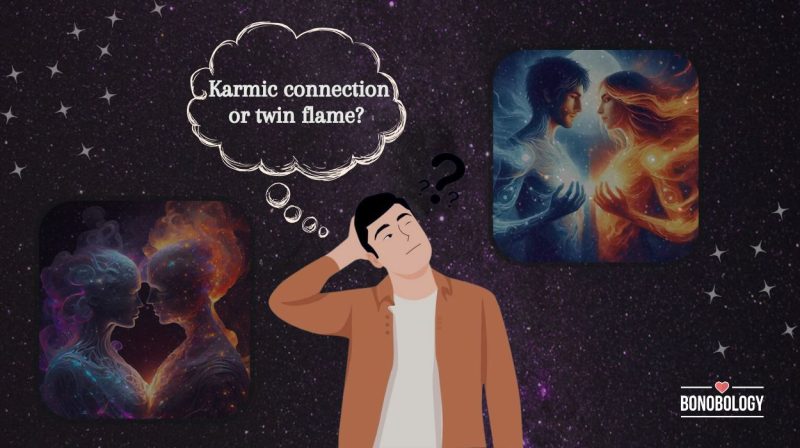


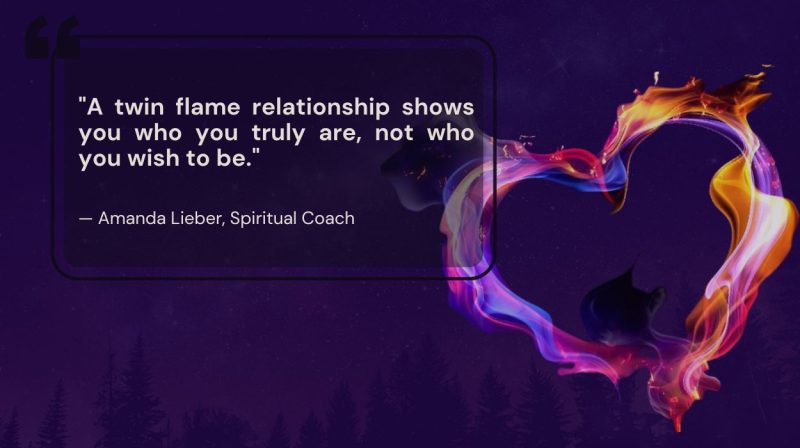


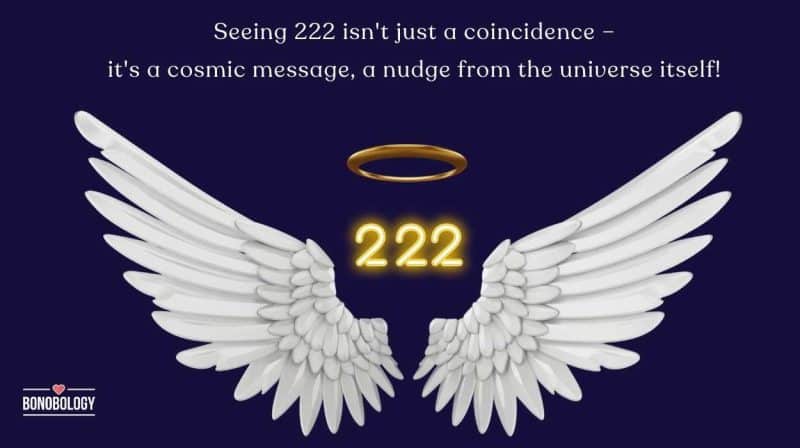



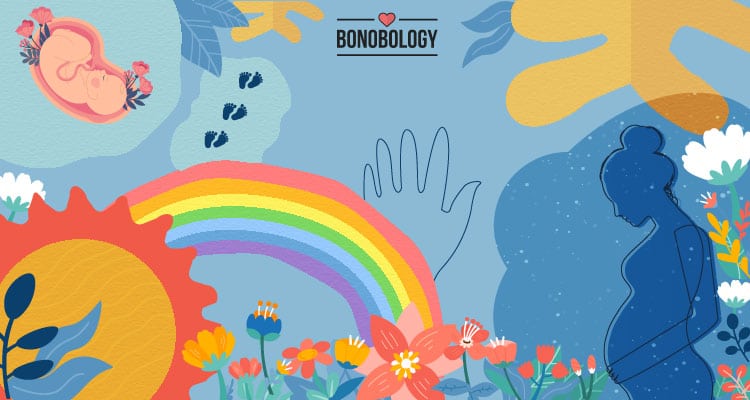





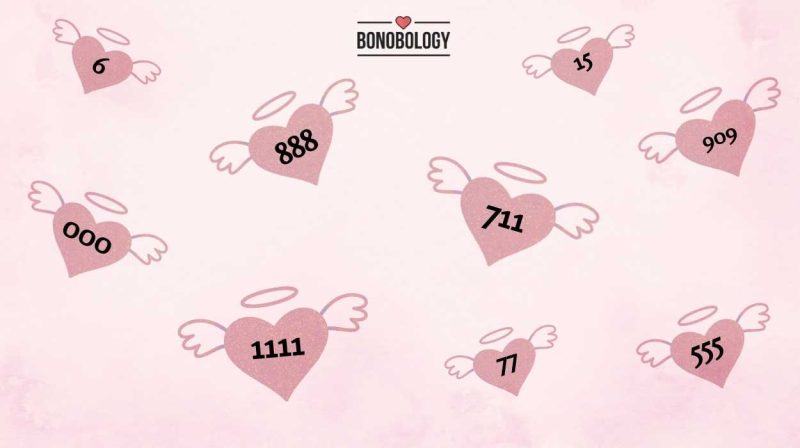



“The typical trajectory from desolation to insight begins with self-pity. Then it goes into extreme anger, then hatred, then indifference, then resignation and finally acceptance.” Loved this line simply. I am also going through the same phase now. Already crossed the phase of extreme anger, then hatred. Now I am in the phase of indifference. And, honestly this is making me to understand who am I, why I am on Earth, what is the purpose of my life, etc.
This was brilliant! Just too good!